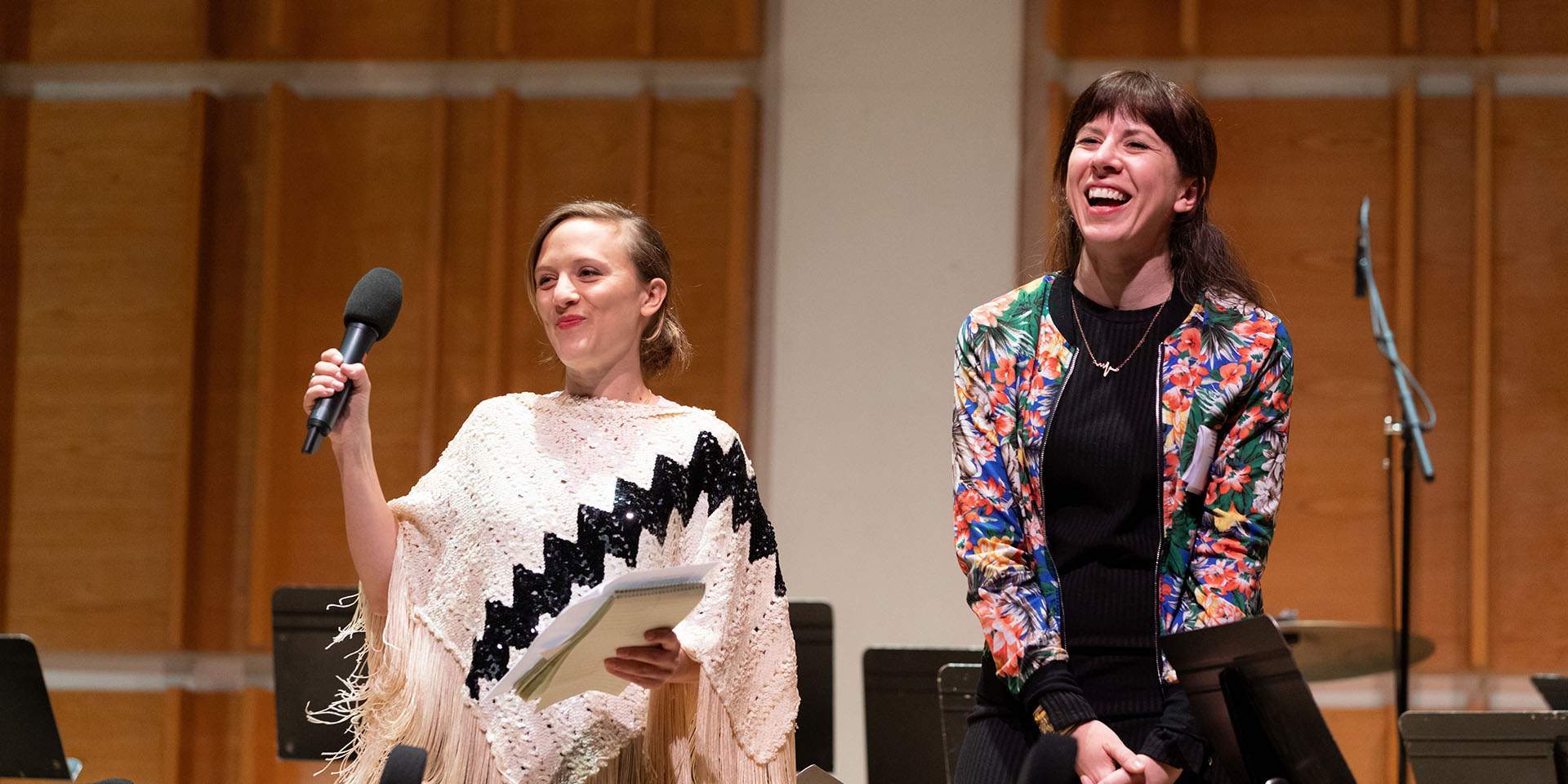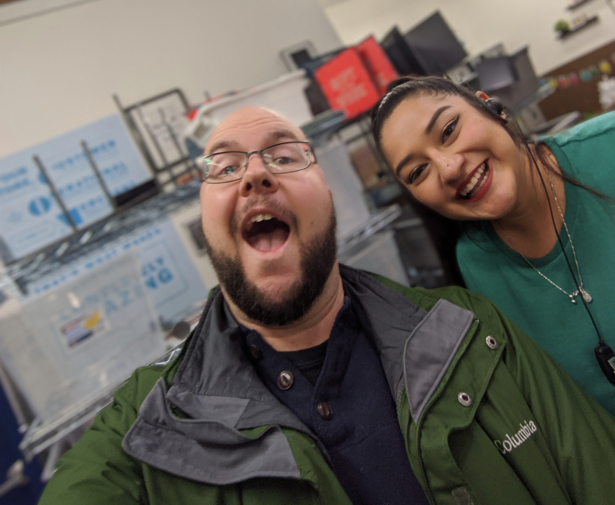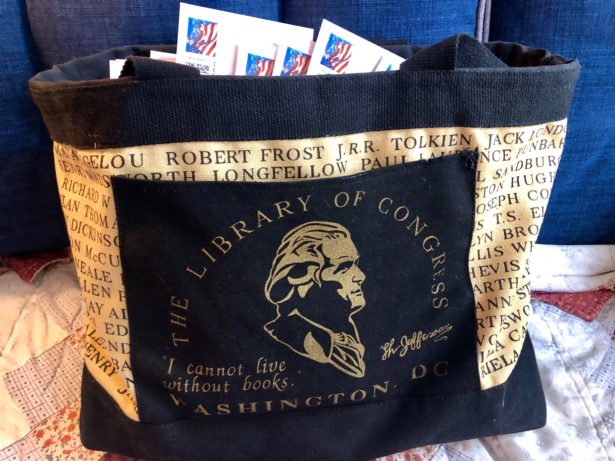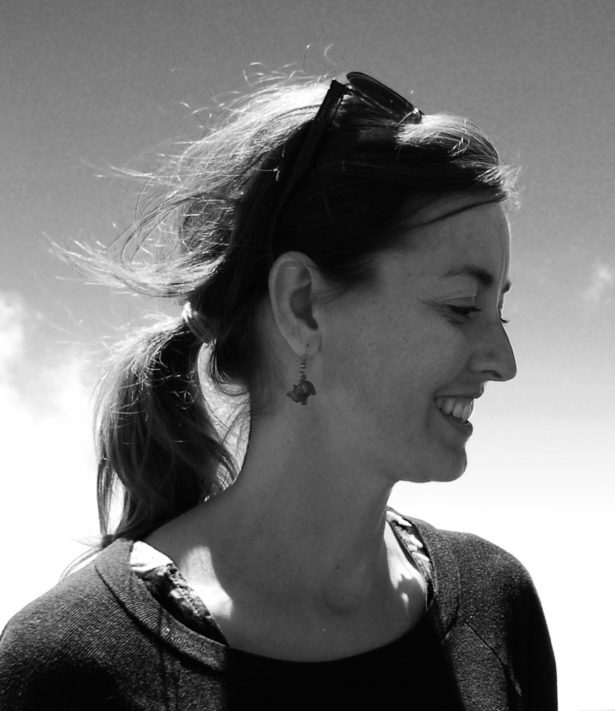
Giving Women’s Voices a Competitive Edge
Two composers pass along the mentorship that helped make their careers possible
Most listeners of classical music have probably noticed, at least in passing, that there seem to be relatively few women who write music for the concert hall. That gap can be explained away by noting the flawed and obsolete views on gender roles that were held in the centuries leading up to the present day. But that doesn’t explain why there continues to be a much smaller number of women working in modern music than there are men.
Composer Missy Mazzoli certainly noticed the difference. So about seven years ago, Mazzoli had the idea to set up a mentoring program for young female composers. “This came from being a young female composer myself,” Mazzoli says, “and having people ask me again and again, why does there continue to be this gender disparity in the composition world?”
Mazzoli (above, right) ascribes the disparity to two things: “There aren’t enough women in positions of power who can act as role models and mentors,” she told Good Turns recently. “And there isn’t enough attention paid to young women in their teens. You decide to be a composer usually in your teens. It’s like being an instrumentalist—you have to start early to have that competitive edge.”
“In all my teaching around the country and going into freshman classes of composers, I never saw anything like a 50/50 split,” Mazzoli says. “So this told me there is something discouraging young women from entering the field at a very young age.”
“Any time you’re in the minority, you need someone who looks like you, who’s maybe six steps ahead of you, to feel like you have a place, and that can’t be overestimated”
After thinking and talking about her idea for a mentoring program for several years, Mazzoli connected with composer Ellen Reid (above, left) to found the Luna Composition Lab under the umbrella of the Kaufman Music Center in New York City. Now in its fourth year, the program selects five female-identifying, non-binary, or gender-nonconforming composers, ages 13-19, and connects them with a prominent mentor in the field of composition. Over the course of the seven-month program, composers meet with their mentor every two weeks via Skype as they work on a composition, and in the spring are brought to New York for a week of activities ranging from concerts of their work to master classes with prominent instrumentalists, tours of places like the Metropolitan Opera House, and more.
“It’s a total immersion in the top echelons of the new music community in New York,” Mazzoli says, “so that these young women feel that they are part of the club, and that there is no barrier between them and a life in music.” The program also includes a professional recording of their composition, which Mazzoli says can be invaluable to a young composer’s career.
“The works are performed by performers from all over the city who are actually their age,” Mazzoli says. “We work with pre-college programs at Juilliard, Mannes School of Music, the Manhattan School of Music, and the Kaufman Music Center. They’re young, but they’re on their way to being the next superstars in the performance community. It’s really important for young composers to connect with young performers. One of our big goals is to have our fellows leave the program armed with the skills to apply to college, to apply to summer festivals, to make the next big leap in their careers. In order to become competitive as a composer, you have to have an amazing recording of your work. That puts you at the top of the list. This will catapult these young women into some of the best schools in the country.”
With only five slots to fill, Luna Lab has to turn down many young composers every year, of course. (Reid’s recent Pulitzer Prize doesn’t hurt in terms of attracting applicants.) But Mazzoli—who receives an honorarium of only $150 a month for running the program—tries to make sure that even those who are not selected do get some benefit. “What I’m really proud of is that every young woman who applies to Luna Lab, we contact all of them,” she says. “We call them, we talk about where they are in their development, we give them resources to continue to improve their skills, and we encourage them to apply again. We track their progress. Really, by just applying, you’re part of the community we’re trying to create.”
Mazzoli says she herself never had the opportunity to study with women when she was young. “Any time you’re in the minority—and women are still very much a minority in the field—you need someone who looks like you, who’s maybe six steps ahead of you, to feel like you have a place, and that can’t be overestimated,” she says. “I had a lot of great teachers, but I had a lot of bad teachers too. They were all men, and they all looked very similar to each other. There’s just not a lot of diversity out there. There was certainly no one who reminded me of myself. But when I came to New York, I worked with Meredith Month and I worked with Julia Wolfe, and I was able to sort of see myself in them, and it felt so different. I thought, Oh, I can see the path forward.”
“We’re just trying to provide that to young women earlier in their careers. I have no doubt they’ll have lots of experiences with hopefully amazing male professors. But I just want them to have 20 percent their professional life with people who remind them of themselves.”
Posted October 21, 2019





